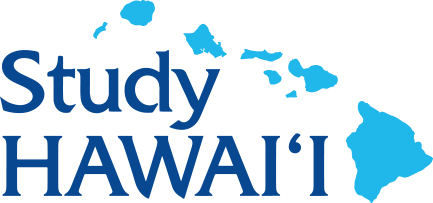In order to study in the United States as a foreigner, you must first obtain a visa. Please find advice on what type of visa you need and how to apply below:
10 Points to Remember when Applying for a Non-Immigrant Visa:
1) Ties to the home country
“Ties” to your home country are the personal affiliations that bind you to your hometown, homeland, or current place of residence: job, family, financial prospects that you own or will inherit, investments, etc. If you are a prospective undergraduate, the interviewing officer may ask about your specific intentions or promise of future employment, family or other relationships, educational objectives, grades, long-range plans, and career prospects in your home country. Each person’s situation is different, of course, and there is no magic explanation or single document, certificate, or letter, which can guarantee visa issuance.
2) Speak for yourself
Under US law, all applicants for nonimmigrant visas are viewed as intending immigrants until they can convince the consular that they are not. You must therefore be able to show that you have reasons for returning to your home country that are stronger than those for remaining in the United States.
3) Research the visas
Before you start applying for a particular visa, research it. Look at the criteria and whether you can meet them. Read about the required documents. Also, try to find blogs or guides on the visas. Our own visa guides are an excellent place to start since they are comprehensive and easy to understand.
The more you know about the visa you want to apply for, the better. You will have more knowledge and be prepared for the application process.
Besides looking into the visa you want to apply to, look at others too. Maybe there is a visa which fits you better and you did not even know it existed. Maybe you were going to apply for a tourist visa, but find out that a business visa is more appropriate.
Finally, if you do not have any time to research the visas, you can hire a professional to help. Many people hire lawyers to clarify the visa process to them, and to help with the application.
No matter how you go about it, gather as much information as possible before starting.
4) Familiarize yourself with the application form
Once you start your application, you will be directed to the main form. This form is the one for U.S nonimmigrant visas, Form DS-160. It is also called the Online Nonimmigrant Visa Application. Before you start filling it out, familiarize yourself with it.
Look through the sections and the information it asks from you and then make sure you have everything you need. You don’t want to start applying and then find out you are missing key information to fill in the form.
5) Keep track of your information
When you start the application process, you will get an application number. Anytime you want to access your DS-160 form to work on it or check the status of your application, you will need that number. You must write it down somewhere and save it because you will not be able to retrieve it in case it gets lost.
Besides this, keep track of all your other information. Make sure you make a copy of the submitted application form and other documents. Pay attention specifically to the DS-160 confirmation page. Once you finish and submit the form, the computer will generate that page. Save it on your computer and then also print a few copies. You will need to bring that for your interview and you must not lose it.
6) Do not make travel arrangements
7) Collect your documents on time
After you submit your DS-160 application form, you know that the next step is to collect your supporting documents. Do not wait until the last minute to get them.
To get most of the documents you will have to go to different governmental agencies, your employer, or your university. This means that you will have to wait for them to process your requests and then go pick up the documents. Because these documents take time to get, it is better that you start as early as possible to make sure you have everything ready for the interview.
8) Prepare for the interview questions
Before you go to the interview, research the visa interview questions. There are tons of blogs and posts out there with many questions and you can prepare for each one. Do not go to the interview unprepared. The U.S Embassy officials are trained to ask tough questions and you might end up getting nervous or not knowing how to answer one.
Instead take some time to read through questions and people’s tips on how to answer. You will be much more prepared and confident when you go to the actual visa interview.
9) Be patient
Once you hand in your supporting documents and finish the interview, wait. The U.S Embassy will be processing your case and will take some time to get back to you with an answer. You might be lucky and they will let you know on the same day as your interview, but that does not happen very often.
Instead, you might have to wait a few days, weeks, or even a few months. Be patient and do not call the Embassy constantly to check up on them. They will notify you when they make their decision.
If they approve your visa, they will mail your passport back to you or you can go and pick it up. If they deny the visa, they will let you know of the reasons. You can then use that to correct the mistakes and apply again.
Either way, you cannot rush the U.S Embassy to make a decision, so just wait until they call.
10) Do not break the visa rules
Each visa has rules on the time you can stay and when it expires. If the U.S Embassy decides to give you the visa, make sure you know those rules. The visa on your passport will state how long you can stay and you must respect that.
Do not try to overstay your visa or do something you are not allowed to. If you have a tourist visa, you cannot find a job or go to school in the U.S. Breaking these rules can result in you being deported from the U.S and will be a problem in the future.
If at any point in time you will then want to apply for a U.S visa again, the U.S Embassy will know you broke the rules before. They will repeatedly deny your visa and you will not be able to go again. So be respectful of the rules and you will have an easier time getting a U.S visa again in the future.
Search Institutions by Name or Category
Looking for a specific institution? Just type the name of the school you are looking for! You can search by institutional category (just click on one of the links above).Search by Course or Program of Study
This search allows you to find institutions that offer specific academic programs/ courses of study. Click on one of the examples above or type in the course of study you are looking for!
All That You Need To Know

